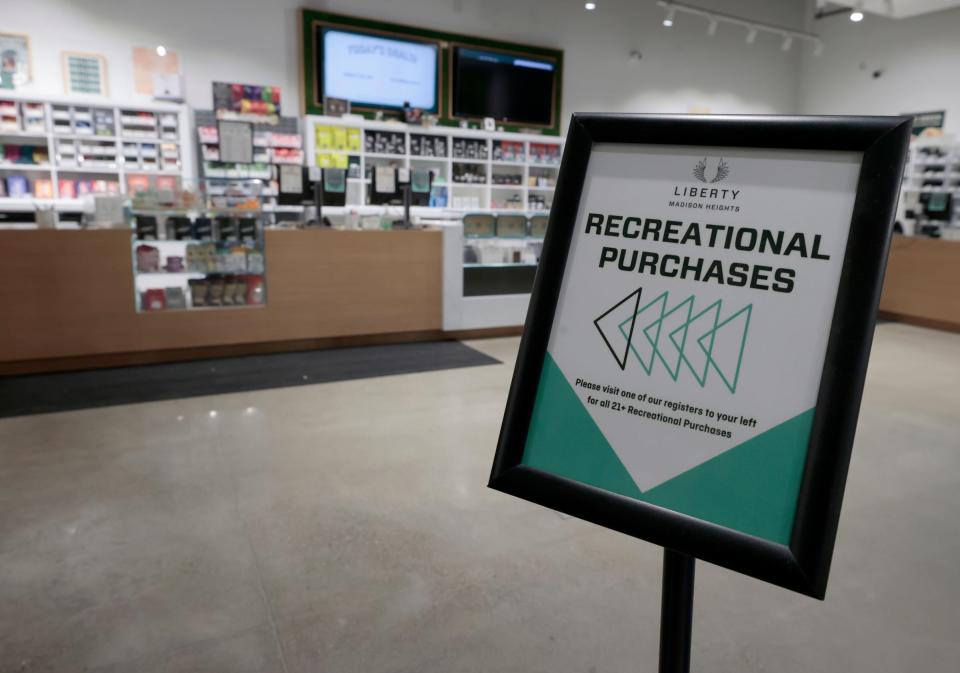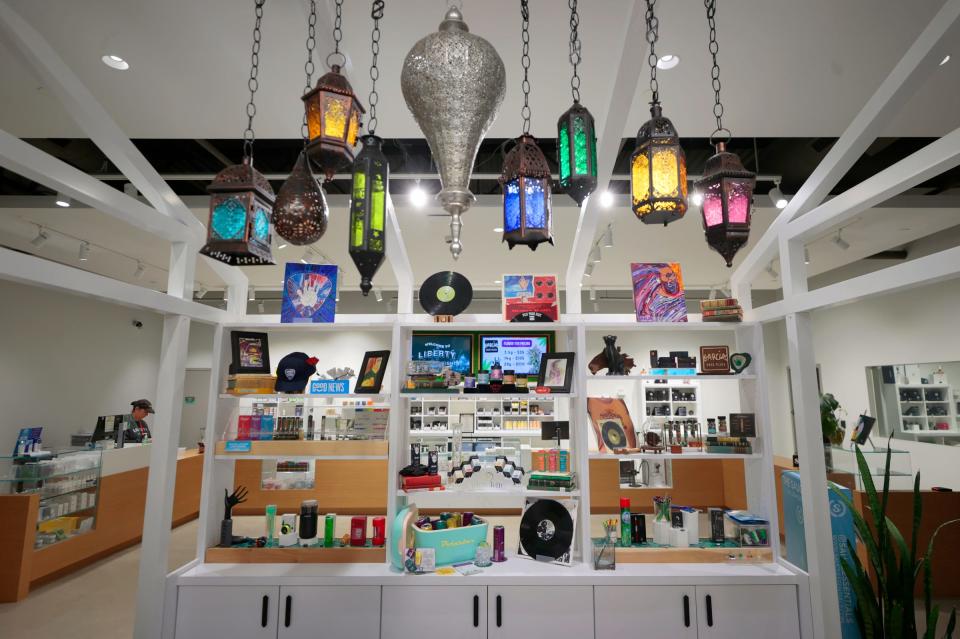Metro Detroit communities allowing cannabis sales using tax revenues in variety of ways
Last month, voters in four upscale metro Detroit communities — Grosse Pointe Park, Keego Harbor, Rochester and Birmingham — said no to allowing recreational marijuana sales in their communities.
The election results were a blow to proponents of recreational marijuana in Michigan who say recreational marijuana still isn't accessible to all metro Detroit residents because dispensaries are mostly concentrated in the suburbs near Detroit and far and few between in the outer suburbs.
These proponents, though, acknowledge that there's still a lot of NIMBY(not in my backyard) associated with cannabis even though Michigan residents voted to legalize recreational marijuana in 2018. Fewer than 10% of Michigan municipalities allow recreational marijuana businesses, according to the most recent data from Michigan's Cannabis Regulatory Agency.
There is a divide between the wealthier metro Detroit communities, many of whom say they don't need the economic development and tax revenue from cannabis businesses and communities that have older blighted buildings or areas that are a little more distressed, Denise Pollicella, founder and managing partner of the Cannabis Attorneys of Michigan, said in an interview earlier this year.
Michele Hodges, mayor of Grosse Pointe Park, told Bridge Magazine after the votes had been tallied: "In our community we feel we can do better." Hodges added that cannabis is easily accessible and can be delivered.
Allowing cannabis sales can also come with potential lawsuits from prospective and current licensees, Pollicella said. Detroit, for example, faced several lawsuits as it set up its recreational marijuana ordinance, delaying the start of recreational marijuana sales for years. Even after sales have started, Detroit faces another lawsuit, this time over the location of a marijuana facility near a school.

"I think that is what has kept municipalities who actually were seriously considering this from opting in sooner because of the absolute barrage of lawsuits," she said. She said that's winding down now, though, and there are ways for municipalities to avoid getting sued, mainly by avoiding putting a cap on the number of licenses available.
Those more than 1,300 communities around the state that have opted out of allowing recreational marijuana businesses won't receive the tax revenue from the sale of marijuana products, which are taxed at 10%. Last year, communities with recreational marijuana dispensaries or microbusinesses received nearly $52,000 per retailer.
The marijuana tax totaled $266.2 million during the fiscal year 2023, a nearly 50% increase over the year prior. Those funds are split among the communities and the counties where the dispensaries are located, the state's school aid fund to be used for K-12 education and the Michigan transportation fund.
The Detroit Free Press reached out to the nearly 20 communities in Macomb, Oakland and Wayne counties that allow recreational marijuana sales to determine how they spend the tax revenue and its impact.
How communities spend cannabis tax revenue
The Oakland County community of Hazel Park was one of the early adopters of recreational marijuana sales. The first recreational marijuana dispensary in the county — Breeze — is located in Hazel Park. The dispensary opened in March 2020, just a few months after the state began allowing recreational marijuana sales.
This was intentional.
The payments Hazel Park receives — it received more than $400,000 last year — go to the Municipal Employees' Retirement System of Michigan's long-term pension obligations, said Hazel Park Mayor Pro Tem Luke Londo.
Hazel Park's pension system is underfunded and Londo expects the revenue will continue to go to its pension system.
"We in Hazel Park are grateful that several ballot proposals failed in metro Detroit in November, and that the city of Detroit took the scenic route in allowing dispensaries to sell recreational marijuana, because our dispensaries have a reliable clientele of residents from Hazel Park and numerous nearby communities," Londo said.
More on the election results: Vote rejects pot sales in Grosse Pointe Park, Keego Harbor, Rochester, Birmingham
More cannabis industry news: Detroit awards 37 recreational marijuana licenses for retail, consumption lounges
Most of the communities, such as Ferndale, Hamtramck, Inkster, Lake Orion and Romeo, said the tax revenue they collect from marijuana sales goes to their city's general fund, which often pays for services such as police, fire and parks and recreation.
For some municipalities, like the city of Wayne, the added $207,364 in revenue from four dispensaries earlier this year to the general fund is beneficial because it's financially distressed, Acting City Manager Ryan Strong said.
Madison Heights in Oakland County also uses the revenue to fund general services, but its city manager said the city gets additional revenue from the taxable value increase from property investments. For example, Liberty Cannabis demoed a former bowling alley and built a new facility, City Manager Melissa Marsh said. This investment increased the property's taxable value and increased taxes to all entities on its tax bill from $50,073 to $374,882 annually, she said.

Center Line, in Macomb County, said this relatively new source of revenue has allowed it to make "one-time investments in our community without increasing millage rates for projects that typically require bonding and/or special assessments," Dennis Champine, city manager of Center Line, said, giving the examples of recreational parks and buildings, municipal complexes and library facilities, where improvements or maintenance was completed that otherwise couldn't be done without additional tax burden, he said.
The Village of Oxford, in northern Oakland County, has increased the number of police officers — from three to four full-time officers and five to six part-time officers a few years ago — to a "much more stable roster of seven full-time police officers and two to three part-time police officers," Village Manager Joseph Madore said.
He said this was a goal of Oxford's that was made a little easier with the $103,682 in tax revenue the village received earlier this year from its two dispensaries.
Lincoln Park's city manager noted, though, that the Wayne County community's general fund revenue for the fiscal year 2022-2023 totaled $25.3 million. The tax revenue of $103,682 from its two dispensaries represents 0.4% of that revenue.
"For a community like ours, the revenue really is not that large," Lincoln Park City Manager James Krizan said. "Now don’t get me wrong, every little bit helps; but the marijuana revenue sharing is not the kind of revenue that will really move the needle."
Contact Adrienne Roberts: amroberts@freepress.com.
This article originally appeared on Detroit Free Press: What metro Detroit communities that allow marijuana sales have gained

